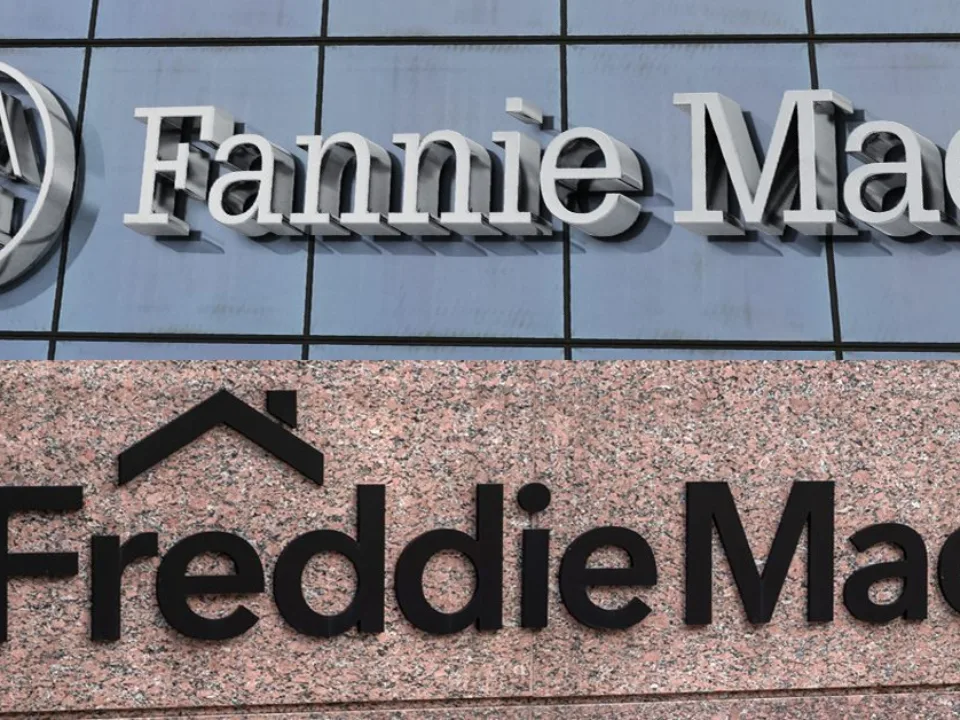Banks Begin Scrubbing Legacy CRE Debt
Two years after the collapses of Silicon Valley Bank and Signature Bank triggered CRE panic, regional banks are actively working through their balance sheets.
Good morning. Banks are quietly scrubbing bad CRE loans off their books, signaling a shift from survival mode to slow-motion cleanup.
Today's issue is sponsored by PACE Loan Group—a smart way to finance your commercial real estate project.
📢 You’ve asked for in-person events—and we’re making it happen. But before we lock in the details, we want your take. Your feedback will help us create experiences that are relevant, engaging, and genuinely valuable to you.
Market Snapshot
|
|
||||
|
|
*Data as of 04/08/2024 market close.
BREAKING RECORDS
Banks Begin Scrubbing Legacy CRE Debt
Two years after regional banking turmoil rattled confidence, banks are quietly clearing out risky commercial real estate debt written during the zero-rate era.
Spring cleaning: Regional banks are actively purging bad CRE loans from their books, particularly those originated during the ultra-low interest rate period. Trepp data shows this effort is helping them sidestep the widespread distress many forecasted in 2024.
Write-downs, not defaults: Bank CRE delinquencies dipped to 1.99% in Q4 2024—the first decline since 2022. But net charge-offs rose 20 basis points, driven by $1B in office loan write-downs, many of which never hit delinquency metrics. Meanwhile, internally flagged “criticized” loans continue to rise.
Cautious lending: New bank-originated CRE loans hit $5.6B in Q4, marking three straight quarters of growth—but still just 41% of average pre-pandemic volume. Lending remains tight amid regulatory pressure and growing reliance on private credit.
Boom hangover: Banks pumped $316B into CRE loans in the first half of 2022 alone before sharply pulling back once rates began climbing. That slowdown in originations is now helping hold delinquency levels in check.
Refi pressure builds: Loans underwritten as rates began rising are now facing repayment hurdles. A 1.5 debt service coverage ratio is emerging as a soft threshold for potential loss, though most bank loans remain above it due to stricter underwriting.
➥ THE TAKEAWAY
Skin in the game: As banks transition from short-term extensions to true refinancing, they’re asking borrowers to bring fresh capital to the table. The era of lenient rollovers is over—lenders want partners with something to lose.
TOGETHER WITH PACE LOAN GROUP
LA office receives $22.4M in C-PACE to refinance construction costs
A creative Class-A office in Los Angeles, California received a $22.4 million C-PACE loan from PLG to refinance energy efficiency and resiliency improvements completed during construction.
The non-recourse loan amortizes over 30 years, and proceeds were used to recapture part of the developer’s original investment, creating liquidity for the owners and their capital stack.
The C-PACE financing qualified by retroactively reimbursing for construction measures including building envelope, seismic retrofits, elevators, lighting, plumbing, HVAC, irrigation, and stormwater mitigation.
*This is a paid advertisement. Please see the full disclosure at the bottom of the newsletter.
✍️ Editor’s Picks
-
Save thousands on property taxes: Ownwell helps multifamily investors cut taxes and increase NOI through expert appeals. No upfront fees. Just savings. (sponsored)
-
Yield volatility: The recent dip in the 10-year Treasury yield offers short-term financing relief for CRE, but widespread economic uncertainty and recession fears are tempering optimism across the sector.
-
Trade retaliation: The EU plans to impose 25% counter-tariffs on select US goods starting in May, responding to President Trump’s steel and aluminum duties while sidestepping a broader trade escalation.
-
Safe haven?: CRE could serve as a stable investment refuge amid escalating tariff tensions, but refinancing challenges and recession risks may still spoil the party.
-
Shed reform: NYC has approved new rules to reduce the time unsightly sidewalk scaffolding can remain in place, aiming to improve streetscape aesthetics and public safety.
🏘️ MULTIFAMILY
-
GSE outlook: Walker & Dunlop CEO Willy Walker believes privatizing Fannie and Freddie wouldn’t significantly impact borrowing costs, so long as implicit government guarantees remain in place.
-
REIT resurgence: Despite tariff-related headwinds and a tough capital environment, major apartment REITs are ramping up construction in 2025, betting on a lighter supply pipeline and stronger returns by 2027.
-
Big bounceback: NYC’s multifamily market is on track for a $10B year, with investor confidence rebounding and Manhattan poised to retake the lead from Brooklyn.
-
Space race: After a decade of shrinking floor plans, US apartments are finally growing again, with cities like San Francisco, Queens, and Marietta leading the charge toward roomier rentals.
-
Aging population: Senior housing demand hit a record high in Q125, with occupancy climbing to 87.4%, but new supply is failing to keep pace as development slows to its lowest level since 2009.
🏭 Industrial
-
Port pressure: The Port of LA expects a 10% cargo drop as sweeping new tariffs spark a slowdown in imports, threatening jobs and supply chains across SoCal.
-
Site upgrade: Unbound Development has purchased a 100 KSF Chandler, AZ warehouse for $14.1M, planning to reposition the site for industrial outdoor storage (IOS).
-
Data delay: Virginia Gov. Glenn Youngkin has effectively shelved a bipartisan bill that would have imposed new environmental oversight on large data center developments, delaying reform until after his term ends.
🏬 RETAIL
-
Big reopening: Big Lots is staging a comeback with the phased reopening of 219 stores across multiple states, starting April 10, after being acquired from bankruptcy.
-
Shopping slowdown: US shopping centers led retail’s 1Q slowdown, posting the largest negative net absorption as elevated costs, rising vacancies, and sluggish demand curb new development.
-
Plano play: Head Capital Partners has sold the 140 KSF Independence Square retail center in suburban Dallas to Fidelity Investments.
🏢 OFFICE
-
Minimal impact: The termination of 679 federal office leases, totaling 7.8 MSF, is expected to have only a minor effect on the national office market, with localized impacts in DC and surrounding areas.
-
Nonprofit pinch: Federal budget cuts are threatening the stability of NYC’s nonprofit office sector, as canceled contracts and funding slashes cast uncertainty over one of the city's quieter CRE tenants.
-
Clean build: Toronto-based proptech startup Adaptis has raised $4M in seed funding to expand its AI-driven carbon management platform for buildings across Canada and the US.
🏨 HOSPITALITY
-
Border blues: Hotels in US border towns like Bellingham, WA, are feeling the sting of rising tensions with Canada, as travel demand plummets due to tariffs and tough political rhetoric.
A MESSAGE FROM BOXABL
Homes in 4 Hours? Assembly Line Revolution Hits Housing
BOXABL is the home construction company bringing assembly line automation to the home industry. With their patented technology and 53 patent filings, BOXABL believes they have the potential to disrupt a massive and outdated trillion dollar building construction market.
The company is offering shares at $0.80 per share, with a $1,000 minimum investment and extended their round due to investor demand.
The closing date 4/14 is the last day to invest in BOXABL on StartEngine.
Disclosure: This is a paid advertisement for Boxabl’s Regulation A offering. Please read the offering circular here. This is a message from Boxabl. *Reserving a Nasdaq ticker does not guarantee a future listing on Nasdaq or indicate that BOXABL meets any of Nasdaq's listing criteria to do so.
📈 CHART OF THE DAY

Apartment rents in the US are expected to rise more quickly in 2Q25 as demand remains strong and new supply slows, according to Apartments.com. After a steady 1.1% YoY increase through March, rents are projected to accelerate, with nationwide gains potentially reaching the high 2% range by year-end.

You currently have 0 referrals, only 1 away from receiving Multifamily Stress Test Model.
What did you think of today's newsletter? |



















